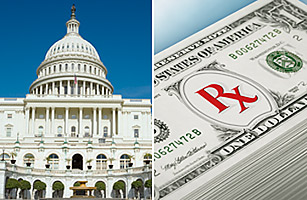Share this
From The Hill:
By Sam Baker and Julian Pecquet – 06/08/11 03:29 PM ET
Judges in the highest-profile challenge to the healthcare reform law appeared skeptical of the federal government’s defense, according to people who attended oral arguments in the case Wednesday.
In nearly three hours of questioning, a three-judge panel of the 11th U.S. Circuit Court of Appeals pressed both sides on the constitutionality of a provision requiring most people to buy insurance. Even some supporters of the coverage mandate said the judges seemed cooler to the federal government’s position than a separate appeals court that heard arguments last month.
The earlier panel seemed especially open to the government’s argument that it has the power to make people buy insurance. According to people who attended the hearing, the 11th Circuit judges asked harder, more challenging questions of both sides.
Walter Dellinger, who was an acting solicitor general under President Clinton, said the judges asked “more skeptical” questions of both sides and particularly of the Justice Department.
The highly charged case is on track for a hearing in the U.S. Supreme Court, which could rule just months before the 2012 election. A ruling against the mandate would undermine key provisions of President Obama’s signature healthcare law, notably its ban on denying people coverage because they are sick.
Those policy effects are undisputed. But the courts also could strike the entire law because one component — the coverage mandate — is unconstitutional.
The 11th Circuit panel spent a lot of time on that question, Dellinger said on a conference call organized by the liberal Center for American Progress. The healthcare law does not include a clause that allows one part to be “severed” from the rest of the statute.
The federal government appealed to the 11th Circuit after a lower court struck down the entire healthcare law. The judge issued an order, however, that allowed states and the federal government to keep implementing the law while the legal challenges advance.
Dellinger said the questioning about severability is an “aspect of concern” for the law’s supporters. The court would only need to make a decision about striking down the rest of the law if it strikes down the coverage mandate.
The law’s challengers picked up on the same point.
“I don’t think you’d be asking all those questions if you thought the mandate was constitutional,” said Karen Harned, the executive director of the small business legal center at the National Federation of Independent Business. NFIB is a plaintiff in the suit, along with 26 states and two individuals.
Harned added that the judges seemed very knowledgeable about the law – particularly the fact that the mandate seeks to get everyone to pay their fair share for healthcare that hospitals are required by law to provide to people without insurance.
“I think they understand that the mandate is a correction to problems that Congress created,” Harned told The Hill.
So far, the central question in the lawsuits has been whether going without insurance is the same as declining to take part in an economic activity. Congress has the power to regulate commerce, but critics of the mandate say it goes a step further and regulates “inactivity.”
The federal government says that everyone uses healthcare services and the mandate is simply a regulation of how those services are paid for.
Dellinger said the 11th Circuit panel seemed to side with the Justice Department on that point.
“The inactivity point is losing salience,” Dellinger said.
Although the court seemed receptive to the Justice Department’s argument on activity and inactivity, he said the panel seemed skeptical because it questioned whether this particular “incentive” to buy private insurance is an appropriate use of Congress’ power.
Ron Pollack, Executive Director of the pro-reform Families USA, had the same impression. He said plaintiffs’ lawyer seemed to make a major “concession” when he told the judges that it’s constitutional to give require people to buy insurance when they’re in a hospital getting care, just not before.
The 11th Circuit is the third appeals court to weigh in, after the 4th circuit and the 6th circuit in Cincinnati. Unlike the other suit, this one also challenges the legality of the law’s vast Medicaid expansion.
Pollack said he was confident that provision would be upheld because judges pointed out that other expansions in the past weren’t considered “coercive” even when the federal government didn’t pick up more than 90 percent of the cost like it is now.
C-SPAN will be airing the arguments here at 3:45 p.m.
Share this
Contact Us
Have questions? Send us a private message using the form below.


